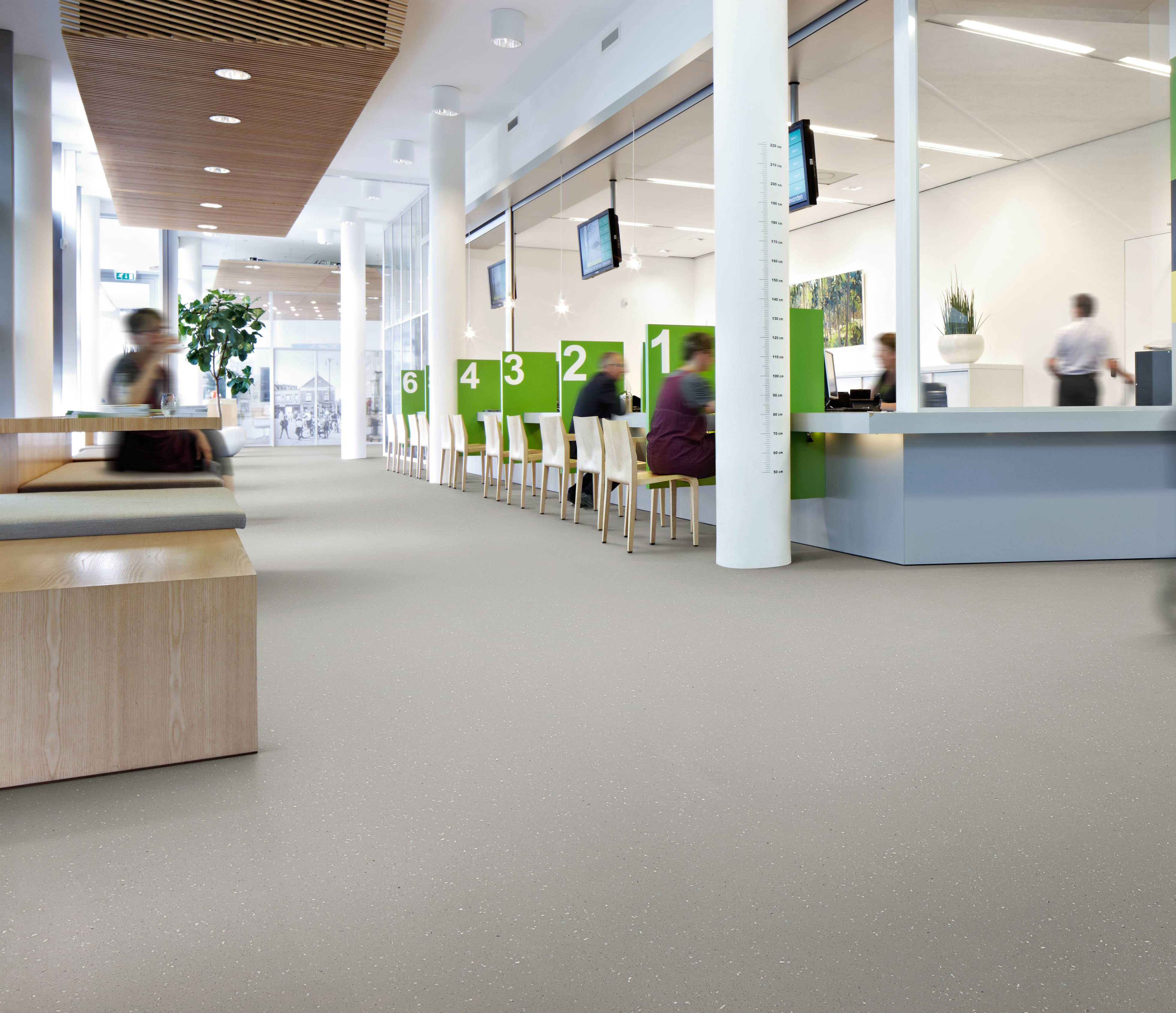
Slips and trips in school are preventable, as Lewis Cooper, Segment Marketing Manager for Education at Forbo Flooring Systems, explains
WITH schools and colleges having a duty of care towards its students and staff, ensuring that they are safe from potential slips and trips is imperative. When specifying safety flooring, it is vital that the slip resistance properties are sustainable throughout the lifecycle of the product. As such, it’s worthwhile familiarising yourself with the safety flooring test methods and what those results mean in terms of contributing to the prevention of slips and trips. First up is the “Pendulum Test”, recommended by the HSE to assess the slip resistance of floor surfaces.
The test can assess slip resistance in both dry and contaminated conditions and measures the coefficient of friction of a floor surface to provide a slip potential classification. The UK Slip Resistance Group and HSE guidelines demonstrate that a pendulum test value (PTV) of zero to 24 indicates high slip potential, a PTV of 24 to 35 signifies moderate slip potential, meanwhile a PTV of 36 or higher is classified as low slip risk. There is also the “Ramp Test”, sometimes referred to as the R Rating. Here, the angle of a ramp is covered with the flooring covering, lubricated with oil and gradually increased until the person walking down it slips.
The flooring is given an R rating, based on the angle at which the tester slips or feels unsafe, which starts at R9 as a minimum standard and increases to the maximum of R13. It is a common misconception that R10 floor coverings are extremely slip- resistant, with some people believing that the scale starts at R1, when in fact it does not. Ramp test values are also based on ex-factory testing and do not take into account changes in slip resistant properties that could occur during the working life of the floor covering. DIN51130 ramp test values should not, therefore, be considered in isolation. Of course, as well as the safety performance of the floor covering, it’s also important to consider its installation. When it comes to education buildings, contractors and facility managers can have a relatively small window of opportunity for maintenance and refurbishment work – mainly during the summer and winter holidays, when the building is closed to staff and students.
With time being of the essence, floor coverings that offer a fast and efficient installation process can be invaluable. The development of adhesive free floor coverings offers education establishments the ideal solution. Providing a quick and easy installation, products can be fitted over existing floors allowing work to be completed during half term breaks, over the weekend, overnight or even whilst the premises are still in use. Due to the fact that the installation is completely free of adhesives, no setting or drying time needs to be factored into the project, meaning that the floor is ready to be walked on immediately after it is fitted, and facilities can resume as normal. Forbo’s newly launched Surestep Fast Fit flooring is designed for environments where a quick turnaround and minimal disruption is required, but where slip resistance is also a priority – making it the ideal solution for the education sector.
The collection is available in a carefully selected palette of 12 on-trend colours and designs including contemporary neutrals, which have a speckled finish, to more modern aesthetics, such as sophisticated concrete and wood designs. The latter of these are completely new to the adhesive-free safety flooring market.